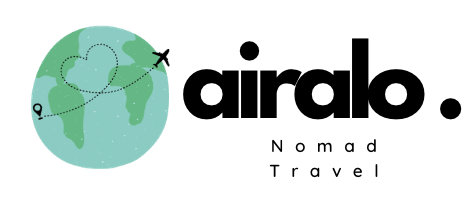
Bali, as one of the world’s most beloved locations for digital nomads, attracts a large number of remote workers and freelancers to settle there. Apart from its charming natural landscapes and cultural allure, Bali has become an ideal place for digital nomads due to its excellent internet connectivity and low cost of living. So, what industries do people choose to engage in remote work in Bali? Let’s explore.
Let’s take a look at the interview in AeonSprayOn’s video “Asking Digital Nomads What They Do For a Living (Bali, Indonesia)”:
“How did you find remote work?
It was accidental. I started a consulting company, and I realized that people actually needed websites. Someone spent 3 months building a website for me, and I was very frustrated, so I spent a day online building one myself. It was really… but I got the job done.
Would you be willing to share how much money you make?
That’s a secret. The taxman wouldn’t like that.
What is your schedule like? At 8:30, I go to a coworking space, pretend to work for an hour, then wander around, have a coffee, chat. My assistant starts at 9. I work for 2 hours, and that’s basically it. I go to the gym. Like you, yes, to the gym?
Yes, from “Boxy,” okay.
Do you have any technical moves? I don’t know, I’m quite embarrassed. I don’t see any technical moves.
What’s the best advice you can give to those who want to become digital nomads?
The fact is, if you love what you do, everything will go smoothly. You just need to build relationships, chat with people, because some people have great ideas and have already done them. You can also, you know, draw inspiration from their ideas and improve them, make them your own, take a chance. Take a chance, like you have to believe in yourself. And move to a more affordable country at the same time, so if your budget is limited, you have more time to practice.
What is the most important skill you have learned on your journey? Super focus.
So when you start, take some time. You just need, you know, no distractions,
What unique connections have you built throughout your career?
Try not to think in the categories that others define. You know, to be an innovator in your field.”
From this interviewee, we can see that digital nomads have strong practical abilities and super focus. Let’s take a look at the second interviewee:
“So, what’s your name, how old are you, and what do you do for a living?
Well, my name is Ahmed. I’m 23. I work for a startup, but I’m more of a jack-of-all-trades. Basically, I handle their emails, create websites for them, and take care of all their technical work.
Which startup are you working for? What do they do?
Another name is Home Care. Previously, I was a cybersecurity consultant, and I didn’t like being in the office all day. So I reached out to a recruiter on LinkedIn, saying I was looking for a new job. Would you hire me? From that point on, I got this job. I am the only technical person and the one handling their emails. So, in my work, I can pretty much do whatever I want, on my own schedule.
Can you give advice to people who want to become digital nomads?
I would say, do what you love, honestly. Because I worked in the cybersecurity field before, for about two years, I loved the work, but I didn’t like being in the office. So you have to step out of your comfort zone, reach out to others, make connections. And then from there, you’ll see what happens.
What is your schedule like?
Honestly, I work about 3 to 4 hours a day, 2 to 3 hours each day. It’s more project-based than time-based. I might go to the gym after waking up, then start working when I come back. I thought it was all just fun and hanging out on the beach, or you know, thinking about when to work, working only two hours a day, and most importantly, making sure you take responsibility for yourself, because when you don’t have to go to the office every day, no one will do it for you. Being able to live this way is a privilege and luxury, and you chose it voluntarily. Make use of it, but don’t mess it up. You’re playing the long game. You can have a great six months, come home making the same or less money than when you left, or you can build a sustainable lifestyle, hoping it will last for the rest of your life. I can’t go back. IThe content you provided appears to be a transcription of interviews with digital nomads in Bali, Indonesia. The interviews offer insights into the lives and work routines of these individuals, shedding light on their motivations, schedules, and advice for aspiring digital nomads. The first interviewee discusses accidental entry into remote work, maintaining focus, drawing inspiration from others, and thinking outside predefined categories. The second interviewee shares experiences about working for a startup, emphasizing the importance of doing what you love, stepping out of comfort zones, and taking responsibility for one’s work and lifestyle choices.”
The above is a summary of the industries primarily engaged in by digital nomads living in Bali:
1. Technology and Internet Industry: Bali has attracted many tech professionals, software developers, and internet entrepreneurs. They engage in software development, website design, digital marketing, and other tech-related work through remote jobs, utilizing the island’s stable network infrastructure.
2. Creative and Design Field: Bali is also a hub for many artists, designers, and creative workers. These individuals find inspiration here and work remotely in graphic design, illustration, photography, video production, and other creative industries.
3. Education and Consulting Services: Educators and consultants have found a conducive environment for remote work in Bali. They may provide services through online courses, remote tutoring, psychological counseling, leveraging the island’s serene environment and suitable pace of life for their work.
4. Digital Marketing and Social Media: Bali has also attracted many digital marketing experts and social media managers. They utilize their flexible work schedules and the beautiful environment to develop marketing strategies for clients, manage social media accounts, and achieve the flexibility and efficiency of remote work.
In conclusion, as a popular destination for digital nomads, Bali attracts remote workers from various industries. They make use of the island’s excellent environment and convenient living conditions to engage in diverse remote work. With the driving forces of globalization and technological advancements, it is foreseeable that Bali will continue to attract more digital nomads to settle there, collectively creating a more diverse and creative working community.
This article draws on insights from the following video source:
For further questions or professional assistance with tax planning, consulting, immigration, or digital nomad services, feel free to leave a comment or contact us via our official WeChat for personalized assistance.





